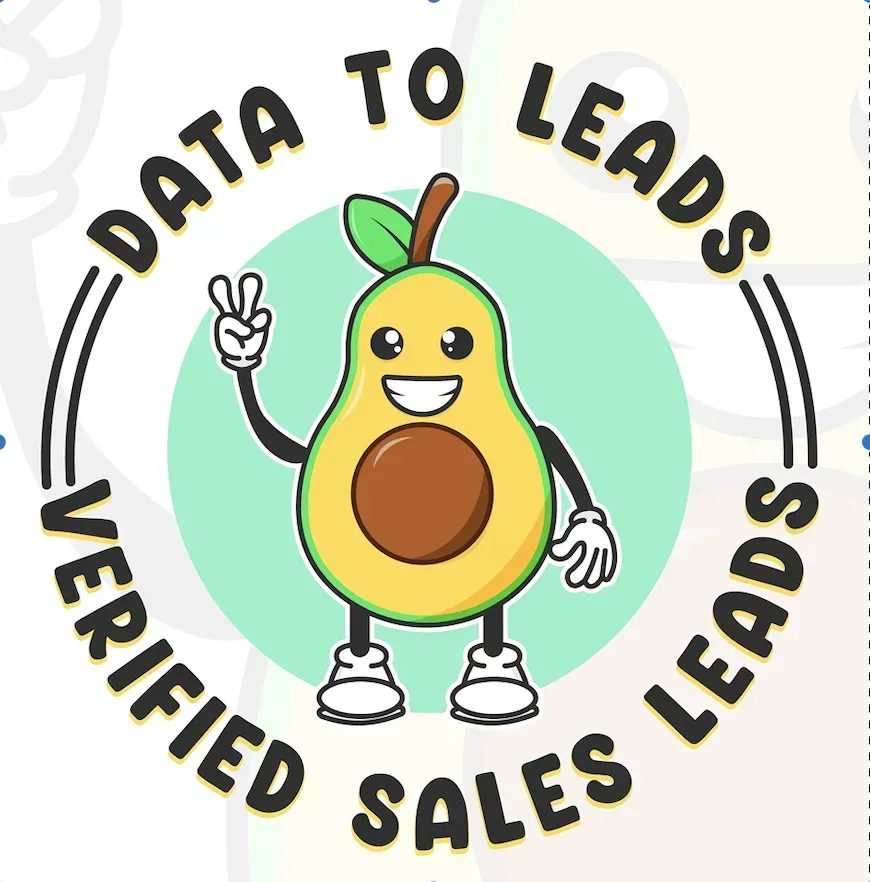David O. Sacks: A Venture Capital Visionary and Tech Luminary
David Oliver Sacks is a renowned figure in the global tech community—an entrepreneur, investor, and policy influencer who has reshaped multiple industries, from payment solutions to enterprise collaboration software. Rising to prominence as an early executive at PayPal, Sacks has since co-founded leading venture funds, launched successful startups like Yammer, produced award-nominated films, and even stepped into public service as the White House AI and Crypto Czar in President Donald Trump’s second administration.
In a career spanning two-plus decades, Sacks has embodied the ethos of “build first, iterate fast,” fostering consumer-friendly tactics in the B2B SaaS realm. He has funneled capital into rising ventures (including Facebook, Uber, Airbnb, and SpaceX) and steered them toward explosive growth. This post from the Avocadata blog unpacks his path—from an immigrant upbringing in Tennessee to the swirl of politics and policy in Washington—and explores the strategic insight that keeps him at the epicenter of multiple tech revolutions.
Early Life & Education
Born on May 25, 1972, in Cape Town, South Africa, David O. Sacks immigrated to the United States at the age of five, settling with his family in Tennessee. Though his father served as an endocrinologist, Sacks gravitated away from the medical profession, inspired by stories of his grandfather’s entrepreneurial candy factory.
Raised in a Jewish household, Sacks attended Memphis University School before heading west to Stanford University, where he earned his B.A. in Economics in 1994. While at Stanford, he developed a deeper interest in the mechanisms of business and finance—an inclination that would later blossom during his storied run at PayPal.
Following Stanford, Sacks spent a few years carving out his understanding of leadership and organizational strategy. He then pursued a Juris Doctor from the University of Chicago Law School, graduating in 1998. Though he briefly contemplated a conventional path in law or consulting, Sacks soon discovered the world of startups was where his creativity and ambitions could thrive.
PayPal & "The Mafia"
The pivotal shift came in 1999 when Sacks left McKinsey & Company to join Max Levchin, Peter Thiel, and Luke Nosek at Confinity—a nascent e-commerce project that would evolve into PayPal. He was the company’s inaugural product leader and, soon enough, its COO. His responsibilities encompassed product management, design, sales, marketing, business development, international, customer service, fraud operations, and human resources.
At a time when PayPal hemorrhaged money, Sacks’s user-focused approach and operational rigor helped pivot the company toward profitability. By February 2002, PayPal had gone public—one of the first Silicon Valley IPOs following the tragic events of September 11. Later that year, eBay acquired PayPal for $1.5 billion.
This group of founders and early execs, nicknamed the “PayPal Mafia,” would inspire an entire generation of startups. Members included Elon Musk, Reid Hoffman, and others who later founded or invested in companies like LinkedIn, SpaceX, Tesla, and more. Sacks himself would broaden his influence by investing in companies that shaped Web 2.0—and beyond.
Hollywood Venture: Producer & Film Enthusiast
After leaving PayPal, Sacks took an unexpected turn into filmmaking. In 2005, he financed and produced Thank You for Smoking, a political satire that premiered at the Toronto International Film Festival. Later distributed by Twentieth Century Fox, the film garnered two Golden Globe nominations, including “Best Motion Picture.”
Returning to the producer’s seat in 2023, Sacks developed Dalíland, a biopic that delves into the life of renowned artist Salvador Dalí. Debuting at TIFF 2022, Dalíland was acquired by Magnolia Pictures for theatrical release. Though overshadowed by his tech achievements, these Hollywood forays highlight Sacks’s willingness to expand beyond startups and software, following whichever creative impulses spark his interest.
Geni & Yammer: Pioneering the Enterprise Social Network
In 2006, Sacks launched Geni.com, a genealogy platform that introduced a social-media-like approach to mapping family trees. To facilitate internal communication, Sacks’s team at Geni developed an in-house tool that allowed employees to chat freely about projects. Realizing the broader corporate potential of this communications tool, Sacks spun it out in 2008 under the name “Yammer.”
Yammer took a consumer-led approach—emphasizing easy signups and user-friendly features—that led to viral growth within businesses. Over just four years, Yammer reportedly amassed over eight million enterprise users, receiving $142 million in venture funding from the likes of Founders Fund, Charles River Ventures, and others.
In 2012, Microsoft acquired Yammer for $1.2 billion, citing it as the foundational piece of its internal collaboration/cloud strategy. Sacks’s success at Yammer helped popularize the notion of “Bottom Up SaaS,” wherein a software’s consumer appeal accelerates its adoption within an organization, eventually securing formal enterprise-wide deals.
Zenefits Era: Navigating Crisis & Reinvention
In December 2014, Sacks made a significant investment in the HR startup Zenefits, then took on the role of interim CEO in January 2016 amid regulatory turmoil concerning insurance broker licensing. According to observers, the company faced a “regulatory crisis,” as it grappling with compliance issues in multiple states.
Under Sacks’s leadership, Zenefits took proactive measures to resolve licensing conflicts with regulators and recalibrate corporate culture. The internal “Z2” product initiative introduced a more sustainable SaaS-based model. While PC Magazine crowned Zenefits the “best HR software on the market” at the time, the startup’s financial health remained precarious, with BuzzFeed reporting losses upwards of $200 million annually. After ten months of restructuring, Sacks transitioned out of the CEO role, handing the reins to Jay Fulcher in early 2017.
Angel Investing: Betting Big on Innovation
Alongside his executive roles, Sacks has spent decades developing a formidable track record as an angel investor. With more than 40 personal investments, he’s supported marquee names like Addepar, Affirm, Airbnb, Clutter, Eventbrite, Facebook, Gusto, Houzz, Intercom, Lyft, Palantir Technologies, Postmates, Scribd, Slack, SpaceX, and Uber.
Not only has he injected capital into these companies, but he’s also offered strategic mentorship in product design, sales tactics, and organizational scaling. Sacks’s early-stage involvement in Facebook, for instance, mirrored his PayPal experiences—spotting potential for viral user acquisition in a budding internet platform. Meanwhile, his bets on SpaceX and Palantir reflect a willingness to target large-scale disruptors with lofty missions.
His firm stance on product-led growth resonates even in these angel plays: Sacks often advocates that successful SaaS models rely on rapid user adoption, frictionless signups, and self-service expansions, before layering on top-tier enterprise deals.
Craft Ventures: A $3.3B Arsenal for Startups
In late 2017, Sacks formalized his investing activities by co-founding Craft Ventures. The fund debuted at $350 million, then raised $500 million in 2019, followed by two more funds totaling $1.3 billion in 2021, lifting total assets under management to $2 billion. By 2023, Craft was managing $3.3 billion across multiple funds.
Craft invests in early- and growth-stage companies, especially those harnessing the “Bottom Up SaaS” model that Sacks popularized. Notable portfolio investments include Replit, AgentSync, Vendr, and more. Whether in consumer marketplaces or developer tools, Craft focuses on dynamic founders who leverage product advantages to create new categories or disrupt existing ones.
Sacks is also credited with being an astute product strategist, often leading pitch meetings with a direct request: “Show me a product demo.” In an environment prone to hype, he remains adamant that a functioning product and genuine user traction are the best indicators of potential success.
Beyond typical venture bets, Craft has delved into crypto via BitGo and secured positions in other novel verticals. In tandem, Sacks remains a presence on the “All-In” podcast, a widely circulated show he co-hosted with Chamath Palihapitiya, Jason Calacanis, and David Friedberg—helping shape discourse on tech, politics, and economics.
Political Career: White House AI and Crypto Czar
On December 5, 2024, Sacks accepted a newly formed position under President Donald Trump: White House AI and Crypto Czar, also serving on the President’s Council of Advisors on Science and Technology. His appointment signified the administration’s commitment to forging a cohesive legal framework for cryptocurrency, as well as harnessing AI for American competitiveness.
Though concerns arose about potential conflicts of interest—given that Sacks still held ties to private enterprise—he was appointed as a “special government employee.” This status exempts him from Senate confirmation requirements, limiting his government working days to 130 per year. Notably, he sold off his personal crypto holdings, including BTC, ETH, and SOL, prior to assuming his official duties. Nonetheless, Craft Ventures continues to back crypto startups, guiding them through the regulatory uncertainties in the industry.
Sacks also oversaw the inaugural White House Crypto Summit, convening top industry players and public officials. President Trump described him as a staunch defender of free speech and an advocate for ensuring that innovators, not bureaucracies, shape the next frontier of digital finance.
Personal Life: Family, Philosophy, and Billionaire’s Row
David Sacks married Jacqueline Tortorice on July 7, 2007, and the couple has three children together—two daughters and a son. They reside in San Francisco’s Pacific Heights, sometimes dubbed “Billionaire’s Row.” Known for philanthropic pursuits and hosting fundraisers, the Sacks household was at the center of a high-profile event in June 2024 to support President Trump’s reelection campaign.
Politically, Sacks has shown a willingness to support candidates across the ideological spectrum, donating significant sums to both Mitt Romney in 2012 and Hillary Clinton in 2016, later shifting attention to Republican candidates in midterm Senate races. Critics argue that his fluid loyalty underscores a focus on issues—such as minimal regulation for tech—over strict party lines.
Outside the day-to-day bustle of investing and politics, Sacks continues producing films through the Producers Guild of America, conceptualizing new business ideas, and writing extensively for his “Bottom Up” blog, which garners tens of thousands of subscribers seeking insights into scaling SaaS enterprises.
Conclusion: The Future Beckons
David O. Sacks’s trajectory is a testament to proactive iteration—jumping from PayPal’s early days to pioneering enterprise social networks with Yammer, from Hollywood productions to White House duties forging crypto regulations. His portfolio reads like an anthology of modern tech titans, and his appetite for product-driven growth narratives remains insatiable.
As an investor at Craft Ventures, Sacks continues to shape how startups think about software distribution, user-centric design, and vertical expansions. In the public arena, he stands at the nexus of AI, cryptocurrency, and free-speech advocacy, championing an era where technology and governance align to protect innovation.
Entrepreneurs, policymakers, and curious onlookers alike would do well to follow Sacks’s story—one that underscores how a broad skill set, from product evangelism to operational discipline and political navigation, can propel even a small startup vision onto the global stage.
At Avocadata, we champion the data-driven ambitions that innovators like David O. Sacks embody. Whether you’re launching your own SaaS rocket ship, seeking capital for a disruptive new concept, or fine-tuning your approach to organizational design, we believe data insights can power unstoppable growth.


